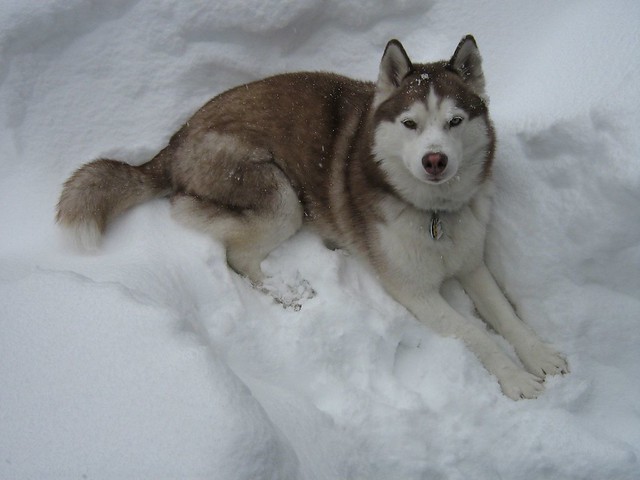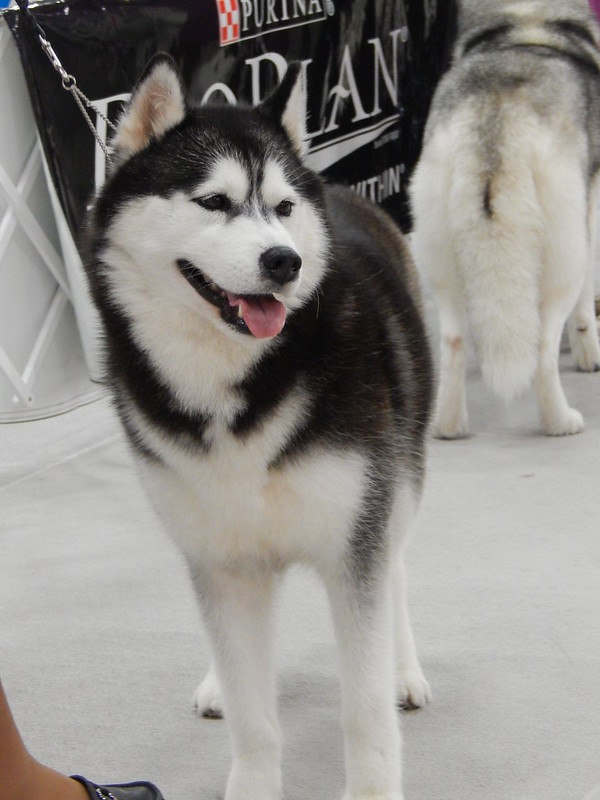 |
| Luna-Lunera,, Siberian Husky (Photo credit: Wikipedia) |
In addition to that, there are a lot of people who are excited to hear that this is a breed that is free of the common dog smell that so many other breeds have. While all of these things can be very beneficial, it is important that you understand the true nature and inner workings of this breed before you make a decision.
If you are a person who is happy, assertive, well-adjusted and active with a great family situation at home, you could be a perfect owner for a Siberian Husky. Despite the shedding that these dogs are subject to, this is a breed that is exceptionally clean. They take a good deal of pride in their coat and will do a lot to keep it clean on their own. Since they do not have a dog odor, they are a good choice for someone who is not a fan of it. Even while they are eating, the husky is a clean dog that will rarely make a mess and keep their dining area really clean.
When it comes to climate, the Siberian Husky just loves colder climates. As a matter of fact, some of them are happiest in the coldest climates. Even if the wind is whipping and snow is falling down, this is a breed that loves everything to do with cold climates. If you live in a warm climate, such as the west or southwest, for example, this may not be the right dog breed for your family and lifestyle.
However, since they have a double coat that is unique in nature, the heat is not going to penetrate as easily so some dogs in this breed are able to adjust gradually. It is simply important to take extra care as well as health precautions when the weather heats up.
While it never means leaving them alone for long stretches, the Siberian Husky is well known for being a fairly independent dog. This breed simply loves human attention and love spending time with their owners. If you are able to devote time and exercise with plenty of love, this could be the right breed for you.
By Wayne Booth
Wayne Booth is the owner of Canine Behavior Specialists, http://www.CanineBehaviorSpecialists.com in Nashville, TN where he helps people train their dogs and solve behavior problems. Wayne has been teaching people how to become Professional Dog Trainers since 1990 and he is the Training Director of the Canine Behavior Specialists Network, http://www.K9-University.com.
Article Source: EzineArticles
|





